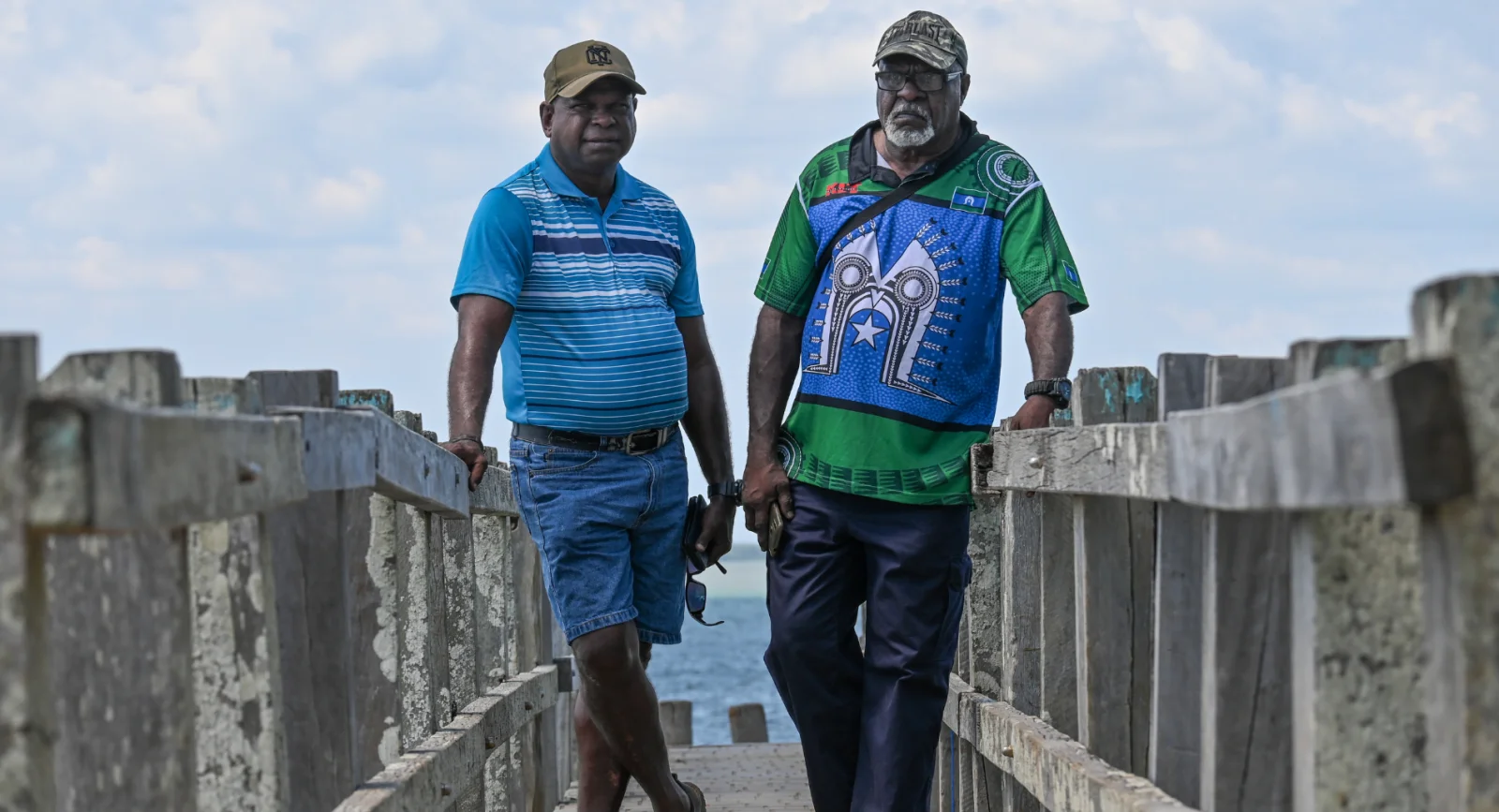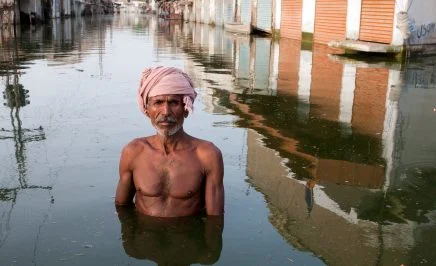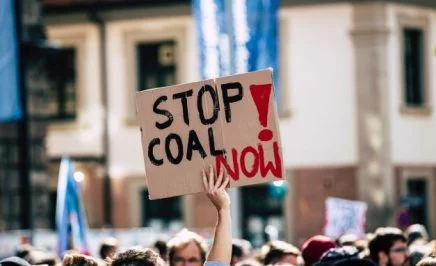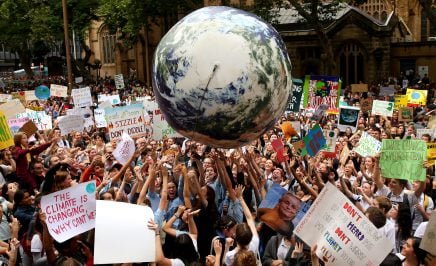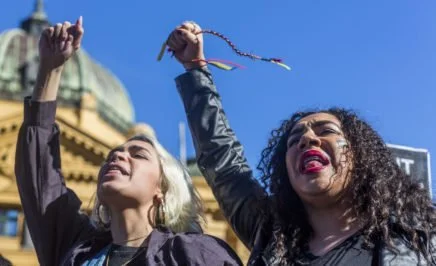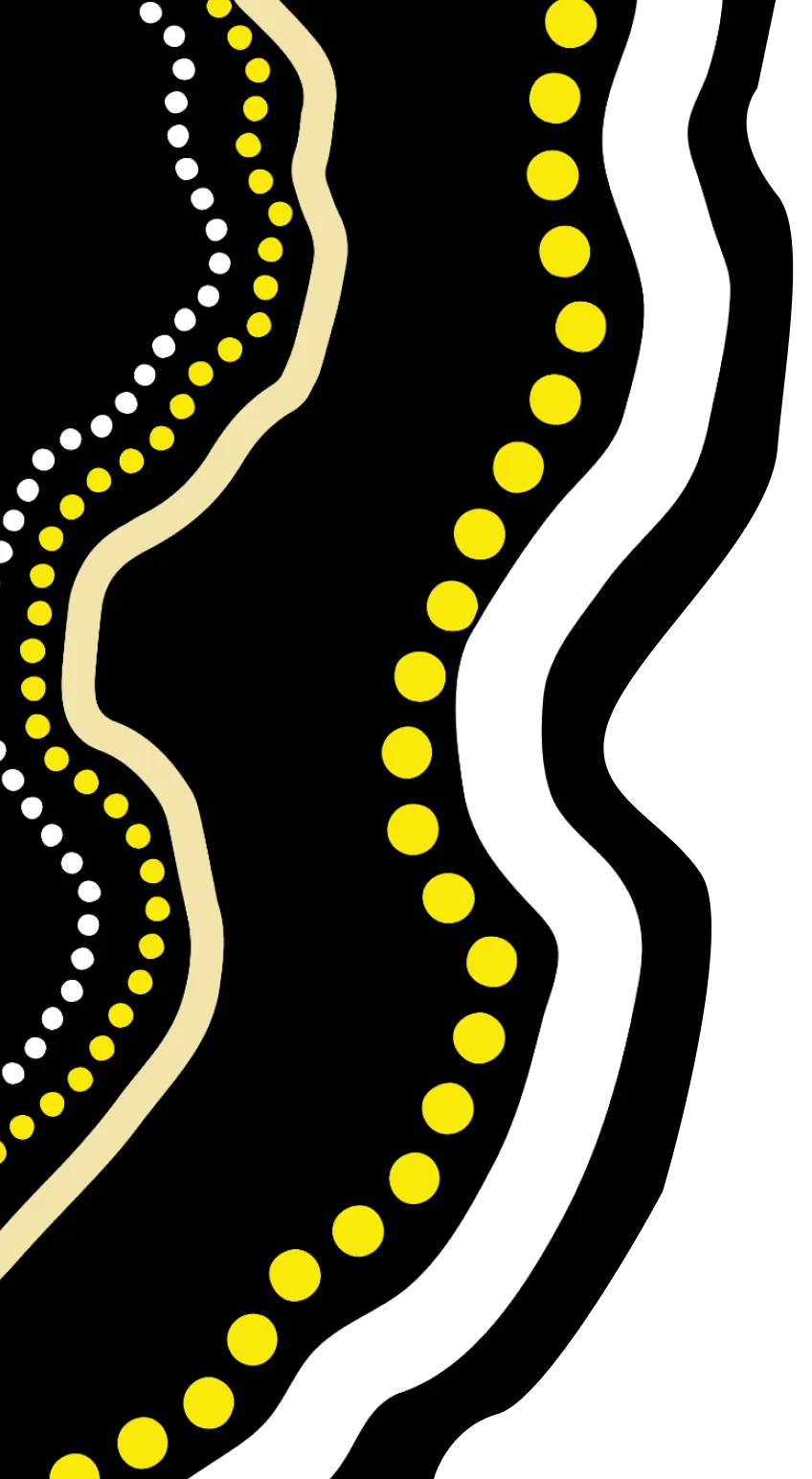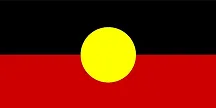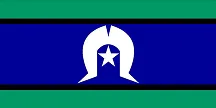My heart aches for my people.
I sat with Paul and Pabai on their islands last year, and saw the pain in their eyes. They’re Guda Maluyligal men, Traditional Owners from Boigu and Saibai islands in the north west of the Torres Strait — and they’re at serious risk of becoming Australia’s first climate refugees.
The climate crisis in the Torres Strait Islands is a familiar one
Sea levels in the Torres Strait are rising twice as fast as the global average. These floods damage people’s homes, and the salt water gets into their gardens — killing the vegetables they grow to feed their families.
Paul and Pabai, who are determined to protect their human rights and their communities — have launched a historic legal action against the Australian government for their failure to take serious climate action.
As we watched the ocean together, Paul and Pabai talked to me about how the seas are rising higher and higher — flooding their homes, gardens and communities. They talked to me about what it would mean to them if they lost their islands. How it would destroy their cultural connection, and disconnect them and future generations from their ancestors and knowledge that has been passed down over 65,000 years.
I see it on my Country too, now called Tasmania.
Ten years ago, things started to change here. By 2015, the changes were extreme.
We used to have bays filled with hundreds of thousands of cubic metres of giant kelp. You could dive out through it, look up through the strings of bubbles, and just see kelp everywhere. When hot water came down the east coast of Australia, it all washed up and rotted on the shore. We saw kelp dying in our hands. It was like a natural disaster in front of us. Where I live, nearly all of the kelp forests have been lost. The water is just too hot.
Climate change is about human rights, and for First Nations Peoples it’s a matter of survival
Climate change is about human rights, and about Indigenous Peoples rights. Paul and Pabai say their case is for all communities across Australia, the Pacific and the world. They want everyone to be safe.
First Nations People have the least impact on the climate, and yet we’re the first ones to be affected by it. But we’re fighting back.
I worry all the time that giant kelp may never come back, and what other climate disasters we will face if the government doesn’t take serious action now. For First Nations Peoples, it’s a matter of survival.
People power works – how you can help
If Paul and Pabai win their case, the court will order the Australian government to do more to protect their communities from harm. At the moment, the government says it will reduce emissions by 43% by 2030. But experts say it needs to be 75% to protect our oceans, Country and the islands in the Torres Strait.
The pressure is already building in the parliament, streets and communities. If we can stand strong with Paul, Pabai and all the First Nations leaders on the frontline, we will be able to build a safe future for us all.
Join communities across the continent, and add your voice to the petition.
Paul and Pabai are standing shoulder to shoulder with First Nations leaders and activists across this continent, who are fighting to protect their rights and communities before it’s too late – and we stand with them.
For Write for Rights 2022, we are taking action for brave individuals from around the world, who have all paid a great price for speaking truth to power. When courageous people protest, they make the world a better place. We must protect the right to protest wherever it is restricted and whenever it is at risk.
Learn more about our Climate Justice campaign and Indigenous Justice campaign.
